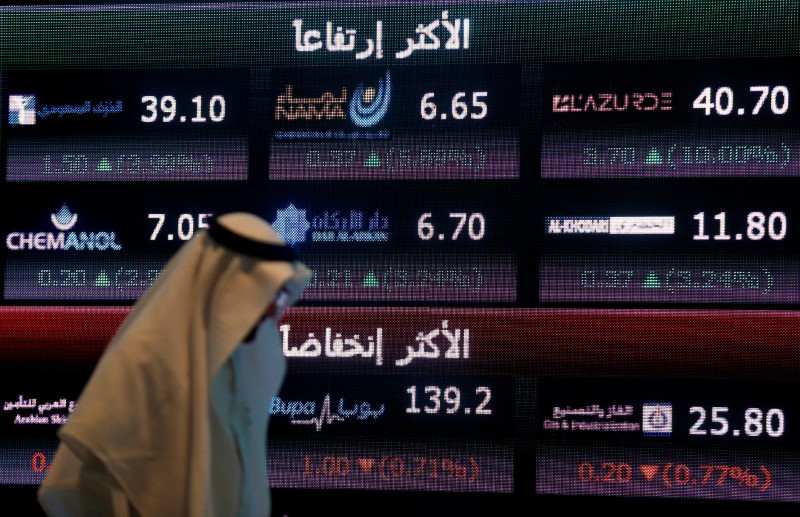This post was originally published on this site
https://i-invdn-com.akamaized.net/news/LYNXNPED9015J_M.jpg
Similar to the Robinhood craze in the U.S., retail investors in the kingdom are piling into small and medium-cap stocks, driving average daily turnover to levels more than double those of a year ago. That’s helped propel a rally in the Tadawul All Share Index, which is poised to be the first benchmark in the Gulf to erase 2020 losses even as the world’s biggest oil exporter grapples with a tumbling oil price.
“We see money chasing good quality companies that were beyond the purview of institutional fund managers,” Joice Mathew, the head of equity research at United Securities in Muscat, said in written comments. “It may not be appropriate to call them Robinhooders of Saudi Arabia, but people are definitely excited about the gains in U.S. markets, and want to mimic it.”
While heavyweight Saudi Aramco (SE:2222) has shared in the market’s rally from a March low, the top gains have been in much smaller names. The Tadawul’s best-performing stocks of 2020 include an information technology provider, an insurer, a fishery firm in the desert kingdom and a media company, all of which have more than doubled since December as investors have latched onto a phenomenon that has boosted stocks from Turkey to South Korea.
While institutional, mutual funds keep buying larger stocks, individuals are “lapping up the mid-cap names,” said Mathew at United Securities.
According to Mazen Al-Sudairi, head of research at Al Rajhi Capital, many investors have excess cash that would otherwise have been spent on foreign trips. As inflation climbs and bond yields drop, people are flocking to the stock market in order to protect wealth, Al-Sudairi said.
For the Saudi stock market, the retail buying spree has provided a lift when it was needed in light of the oil price’s crash to $40 a barrel. The average daily turnover for Saudi shares rose to near 12 billion riyals as of Sept. 15, or about 2.5 times the amount of a year ago. The average value of trade is about five times higher than in Sept. 2016, when Brent crude was trading at a higher level and the country was boosting measures to attract foreigners.
Khalid Al Hussan, chief executive officer of the Saudi exchange, the Tadawul, also cited rising activity among retail investors as a reason for increased trading volume, in a Bloomberg TV interview on Sept. 1.
The recent surge in appetite doesn’t mean investors are finding bargains across the board in the Middle East’s biggest exchange. The main Saudi index is trading near the highest premium to shares in emerging markets in at least 12 years. That pricing gap could widen more once FTSE Russell increases the weight of some Saudi shares in its widely followed EM benchmark next week, leading to forced buying by passive funds.
Investors are not finding “many other attractive investment avenues available,” said Muhammad Faisal Potrik, head of research at Riyad Capital.
©2020 Bloomberg L.P.


